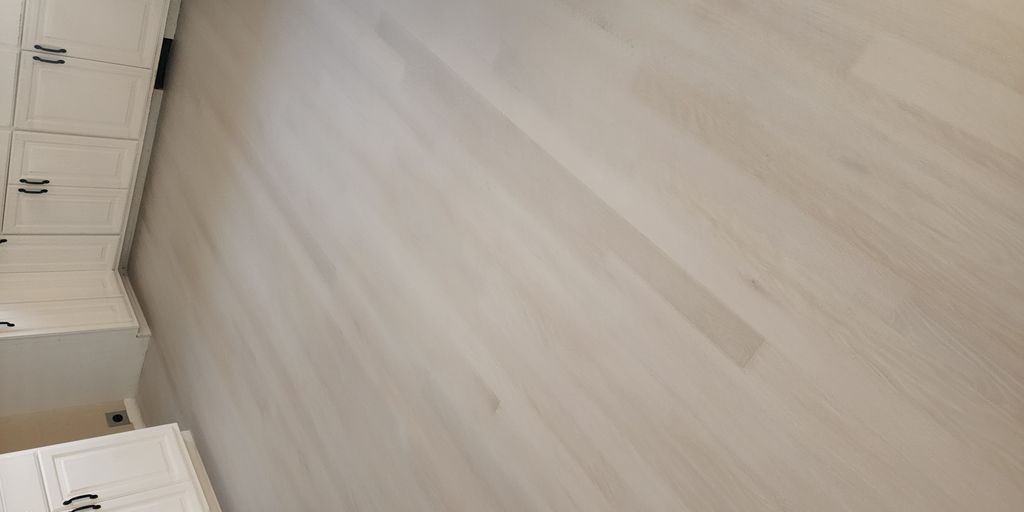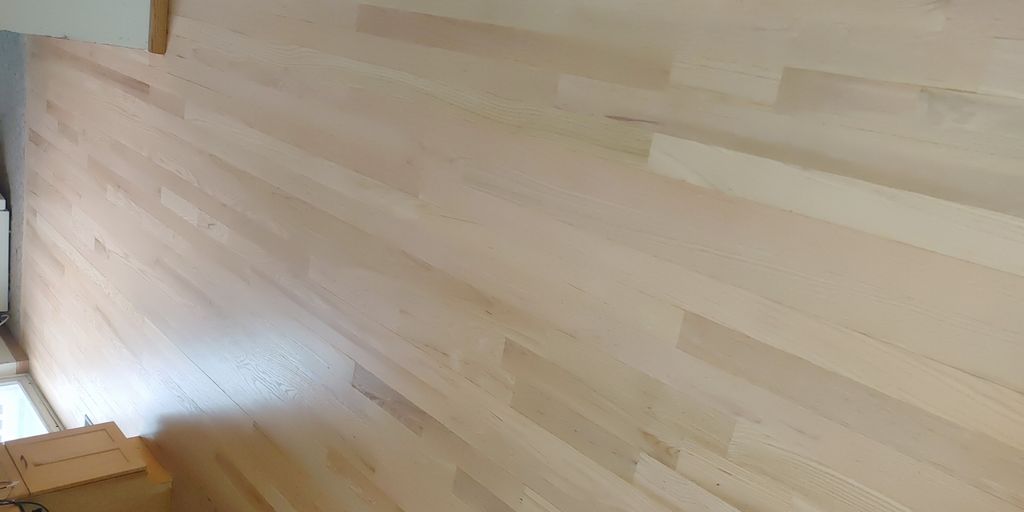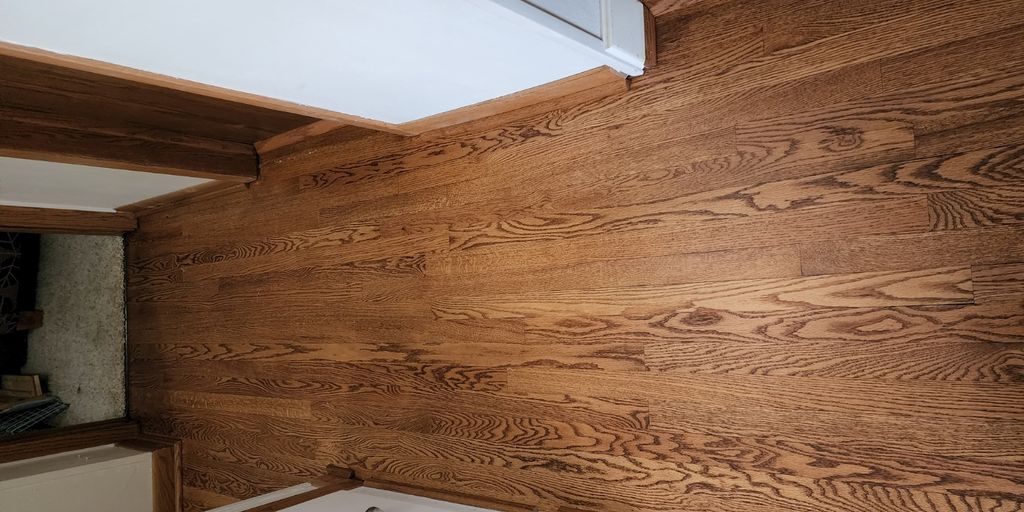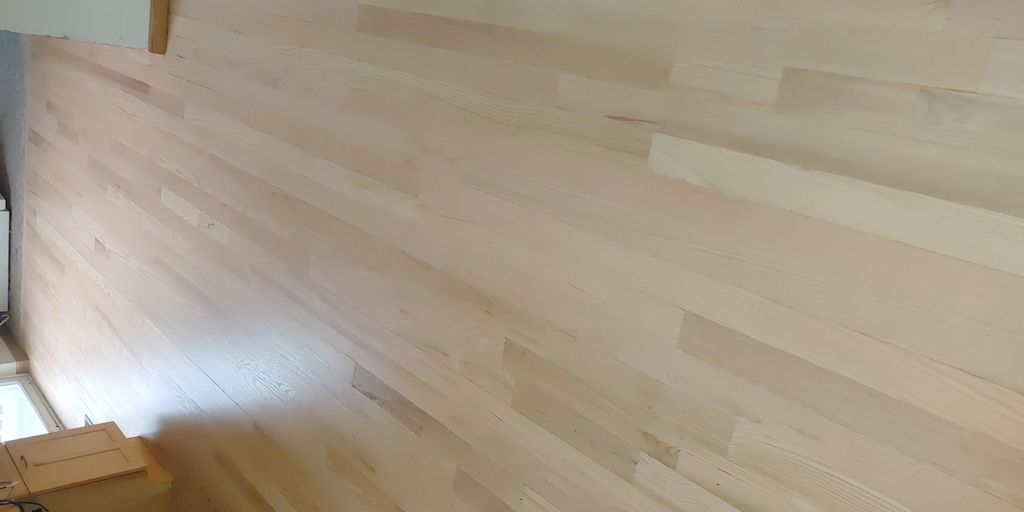Choosing the right hardwood flooring for your home can feel overwhelming with so many options available. This article will help you understand the different types of hardwood floors, their unique features, and how to select the best one for your space. Whether you’re looking for something traditional, modern, or rustic, there’s a hardwood option that will fit your needs and style.
Thank you for reading this post, don't forget to subscribe!Key Takeaways
- Explore the main types of hardwood floors: solid, engineered, and reclaimed.
- Consider your lifestyle and how much foot traffic your floors will experience.
- Match the hardwood style to your home’s decor for a cohesive look.
- Set a budget that includes not only the flooring but also installation and maintenance costs.
- Stay informed about current trends in hardwood flooring to make a stylish choice.
Understanding Solid Hardwood Flooring

Solid hardwood flooring is a classic choice for homeowners looking to add warmth and elegance to their spaces. This type of flooring is made from a single piece of wood, providing a unique and timeless look that can enhance any room.
Characteristics of Solid Hardwood
- Durability: Solid hardwood is known for its strength and longevity. It can withstand heavy foot traffic and can be refinished multiple times, making it a long-term investment.
- Natural Beauty: Each plank is distinct, showcasing the natural grain and color variations of the wood species, such as oak, maple, or walnut.
- Thickness: Typically, solid hardwood planks are about ¾ inch thick, allowing for sanding and refinishing over the years.
Pros and Cons of Solid Hardwood
| Pros | Cons |
|---|---|
| Long-lasting and durable | Sensitive to moisture |
| Can be refinished multiple times | Not ideal for basements |
| Adds value to your home | Can be more expensive |
Best Rooms for Solid Hardwood
- Living Rooms: Perfect for creating a warm and inviting atmosphere.
- Bedrooms: Offers a cozy feel and is hypoallergenic.
- Dining Rooms: Enhances the elegance of your dining space.
Solid hardwood flooring is a beautiful and durable option that can significantly increase the value of your home. Consider consulting with Local Hardwood Flooring Services to explore the best options for your space.
Exploring Engineered Hardwood Options
What is Engineered Hardwood?
Engineered hardwood is a type of flooring made from multiple layers of wood, with a top layer of real hardwood veneer. This construction makes it more stable than solid hardwood, allowing it to withstand changes in humidity and temperature. It can be installed in various areas of the home, including basements, and is available in a wide range of wood species and finishes.
Advantages of Engineered Hardwood
- Stability: Engineered hardwood is less prone to warping compared to solid hardwood, making it suitable for areas with fluctuating humidity.
- Versatility: It can be installed over concrete slabs and in basements, providing more options for homeowners.
- Cost-Effective: Generally, engineered hardwood is more affordable than solid hardwood, making it a great choice for budget-conscious homeowners.
Installation Tips for Engineered Hardwood
- Acclimate the Planks: Allow the planks to adjust to the room’s temperature and humidity for at least 48 hours before installation.
- Use the Right Underlayment: A good underlayment can help with sound absorption and moisture control.
- Follow Manufacturer Instructions: Always adhere to the specific installation guidelines provided by the manufacturer to ensure the best results.
Remember, engineered hardwood flooring combines beauty, durability, and affordability, making it an ideal choice for home renovations. It offers stability, moisture resistance, and a variety of designs, enhancing home value.
The Charm of Reclaimed Wood Flooring

Reclaimed wood flooring brings a unique and eco-friendly touch to your home. Did you know that reclaimed wood can [[last up to 100 years](https://aiky.store/the-timeless-charm-of-reclaimed-wood-why-its-perfect-for-your-home/?srsltid=AfmBOorX_uZHEwjlxcQAP_2nWyP2B_upiJafcrE4Xizi35sBsqJ5NeY9)](https://aiky.store/the-timeless-charm-of-reclaimed-wood-why-its-perfect-for-your-home/?srsltid=AfmBOopLYNSBEbRSuzjpUWMhukXlQ2LfewNuZG_TFx3KOYsB2IC5n4eE)? This type of flooring not only adds character but also supports sustainability by repurposing old materials.
Benefits of Reclaimed Wood
- Sustainability: Using reclaimed wood helps reduce waste and promotes environmental responsibility.
- Unique Character: Each plank has its own history, adding a distinct charm to your space.
- Durability: Reclaimed wood is often more durable than new wood, as it has already stood the test of time.
Where to Use Reclaimed Wood
- Living Rooms: Adds warmth and a rustic feel.
- Kitchens: Creates a cozy atmosphere while being durable enough for high traffic.
- Bedrooms: Provides a serene and inviting environment.
Caring for Reclaimed Wood Floors
- Regular Cleaning: Use a soft broom or vacuum to remove dirt and debris.
- Avoid Excess Moisture: Wipe up spills immediately to prevent damage.
- Periodic Maintenance: Consider refinishing every few years to maintain its beauty.
Reclaimed wood flooring is not just a choice; it’s a statement about your commitment to sustainability and style. Embrace the charm and history that each plank brings to your home.
Exotic Hardwood Flooring Choices
Exotic hardwoods bring a unique flair to your home with their stunning colors and patterns. These woods are often more durable and harder than domestic species, making them a premium choice for high-traffic areas.
Popular Exotic Hardwood Species
- Brazilian Cherry: Known for its rich color and durability.
- Teak: Highly resistant to moisture, making it ideal for humid environments.
- Mahogany: Offers a deep, warm hue and intricate grain patterns.
Unique Features of Exotic Hardwoods
- Color Variety: Exotic woods come in a range of colors, from deep reds to golden browns.
- Grain Patterns: Each species has distinct grain patterns that add character to your floors.
- Durability: Many exotic hardwoods are harder than traditional options, providing longevity.
Considerations for Exotic Hardwood
- Cost: Exotic hardwoods can be more expensive, typically ranging from $8 to $18 per square foot.
- Sourcing: Ensure that the wood is sustainably sourced to minimize environmental impact.
- Maintenance: Some exotic woods may require special care to maintain their appearance.
When choosing exotic hardwood, consult with a Local flooring Professional to ensure you select the best option for your home’s needs and style.
Choosing the Right Hardwood for Your Lifestyle
When it comes to selecting hardwood flooring, understanding your lifestyle is key. Here are some important factors to consider:
Assessing Your Household Needs
- Durability: If you have kids or pets, opt for harder wood species that can withstand scratches and dents. Consider options like oak or hickory for their durability.
- Traffic Levels: High-traffic areas benefit from engineered hardwood, which is designed to handle wear and tear better than solid hardwood.
- Moisture Resistance: For kitchens or basements, engineered hardwood is often a better choice due to its moisture resistance.
Matching Hardwood to Interior Design
- Color and Grain: Choose a color that complements your existing decor. Lighter woods can make spaces feel larger, while darker woods add warmth and elegance.
- Style: Consider whether you prefer a modern, rustic, or traditional look. Each style can significantly impact the overall feel of your home.
- Finish: The finish can affect both the appearance and maintenance of your floors. Oil-based finishes are durable, while water-based finishes dry quickly and are less odorous.
Budgeting for Hardwood Flooring
- Material Costs: Hardwood flooring can range from $3 to $12 per square foot. Exotic woods tend to be more expensive than domestic options.
- Installation Expenses: Professional installation can add $1.50 to $4 per square foot to your budget. DIY can save money but requires time and effort.
- Long-Term Value: Investing in quality hardwood can enhance your home’s value and aesthetic appeal, making it a worthwhile expense.
Remember, the right hardwood flooring can significantly enhance the beauty and value of your home. Take your time to explore different options and consult with professionals if needed.
By considering these factors, you can choose the perfect hardwood flooring that fits your lifestyle and enhances your home’s charm.
Hardwood Flooring Finishes and Their Impact
When it comes to hardwood flooring, the finish you choose can greatly affect both the look and durability of your floors. Here’s a closer look at the different types of finishes available and their impact on your home.
Types of Hardwood Finishes
There are two main types of finishes: factory-applied and site-applied. Each has its pros and cons. Here’s a quick overview:
| Finish Type | Pros | Cons |
|---|---|---|
| Oil-Based | Durable, rich color | Longer drying time, strong odors |
| Water-Based | Quick-drying, low odor | Less durable than oil-based |
| UV-Cured | Extremely durable, low maintenance | Higher cost |
| Natural Oils | Eco-friendly, enhances natural beauty | Requires more frequent reapplication |
Choosing the Right Finish
Selecting the right finish depends on your lifestyle and the specific needs of your home. Here are some factors to consider:
- Durability: If you have pets or kids, opt for a more durable finish.
- Aesthetics: Consider how the finish will complement your home’s decor.
- Maintenance: Some finishes require more upkeep than others.
Remember, consulting with local flooring refinishers can provide valuable insights into the best options for your specific needs.
Maintenance of Finished Floors
To keep your hardwood floors looking their best, regular maintenance is essential. Here are some tips:
- Sweep or vacuum regularly to remove dirt and debris.
- Use a damp mop with a suitable cleaner to avoid damaging the finish.
- Reapply finish as needed to maintain protection and appearance.
In conclusion, the finish you choose for your hardwood floors can significantly impact their beauty and longevity. By understanding the options available and considering your lifestyle, you can make an informed decision that enhances your home’s value and appeal.
Popular Hardwood Species for Flooring
When selecting hardwood flooring, the species you choose can greatly influence the look and feel of your home. Here are some of the most popular hardwood species:
Characteristics of Oak Flooring
- Durability: Oak is one of the most popular hardwoods due to its strength and resilience.
- Varieties: Available in red and white, each offering unique hues and grain patterns.
- Cost: Typically ranges from $5 to $11 per square foot.
Maple vs. Hickory: A Comparison
- Maple: Known for its fine grain and light color, maple is slightly more durable than oak with a Janka rating of 1450.
- Hickory: With a Janka rating of 1820, hickory is the hardest domestic wood, making it ideal for high-traffic areas.
- Aesthetic Appeal: Hickory offers a rustic look, while maple provides a more refined appearance.
Why Choose Walnut Hardwood?
- Rich Color: Walnut features deep, rich tones that add elegance to any space.
- Grain Pattern: Its unique grain patterns make each plank distinct.
- Durability: With a Janka rating of 1010, walnut is durable yet softer than oak and hickory, making it suitable for moderate traffic areas.
Choosing the right hardwood species is essential for achieving the desired aesthetic and durability in your home. Each species has its own unique characteristics that can enhance your living space.
Hardwood Flooring Trends to Watch
Wide Plank Flooring
Wide plank flooring is becoming increasingly popular for its ability to create a spacious feel in any room. These planks, often wider than 5 inches, provide a seamless and modern look that many homeowners love. This trend not only enhances the aesthetic but also makes spaces feel larger and more inviting.
Distressed and Hand-Scraped Styles
The charm of distressed and hand-scraped hardwood floors is undeniable. These styles add a rustic touch to your home, making it feel warm and welcoming. Homeowners are drawn to the unique character that each plank offers, as no two pieces are alike. This trend is perfect for those looking to add a bit of history and personality to their spaces.
Eco-Friendly Hardwood Options
Sustainability is a growing concern for many homeowners, and eco-friendly hardwood options are on the rise. From reclaimed wood to sustainably sourced species, these choices not only benefit the environment but also add a unique flair to your home. Choosing eco-friendly hardwood can enhance your home’s beauty while promoting sustainability.
Remember, the right hardwood flooring can significantly enhance the beauty and value of your home. Explore current trends and consult professionals for the best results.
| Trend | Description | Benefits |
|---|---|---|
| Wide Plank Flooring | Wider planks create a spacious feel. | Makes rooms feel larger and more inviting. |
| Distressed Styles | Adds rustic charm and unique character. | Each plank tells a story. |
| Eco-Friendly Options | Sustainable choices that benefit the environment. | Enhances beauty while promoting sustainability. |
Installation and Maintenance of Hardwood Floors
DIY vs. Professional Installation
When it comes to installing hardwood floors, you have two main options: doing it yourself or hiring a professional. Choosing a skilled installer can make a significant difference in the outcome. Here are some points to consider:
- Experience: Professionals have the expertise to handle various types of hardwood.
- Tools: They come equipped with the right tools for a flawless installation.
- Time: Hiring someone can save you time and effort.
Routine Care for Longevity
To keep your hardwood floors looking their best, regular maintenance is essential. Here are some tips:
- Sweep or vacuum regularly to remove dirt and dust.
- Use a damp mop with a cleaner designed for hardwood floors.
- Avoid excessive water, as it can damage the wood.
Dealing with Scratches and Dents
Over time, your hardwood floors may develop scratches or dents. Here’s how to address them:
- Minor scratches can often be buffed out with a soft cloth.
- For deeper scratches, consider using a wood filler that matches your floor.
- Refinishing may be necessary every 7-10 years to restore the floor’s original beauty.
Remember, proper installation and care can significantly extend the life of your hardwood floors, keeping them looking beautiful for years to come.
Post-Installation Care
After installation, it’s crucial to allow your floors to acclimate. Wait 24 hours before walking on them, and 72 hours before moving furniture. This helps prevent warping and ensures a smooth finish. Avoid cleaning for seven days to let the finish cure properly.
By following these guidelines, you can enjoy the beauty and durability of your hardwood floors for many years to come!
Evaluating the Cost of Hardwood Flooring

When considering hardwood flooring, understanding the costs involved is crucial. Hardwood flooring costs typically range from $7 to $25 per square foot, but most homeowners will pay around $16 per square foot on average. This price can vary based on several factors, including the type of wood, installation method, and finishing options.
Material Costs and Budgeting
- Wood Species: Different species have different price points. For example, exotic woods tend to be more expensive than domestic options.
- Grade and Appearance: Higher-grade woods are often pricier but offer better aesthetics and durability.
- Plank Width and Thickness: Wider and thicker planks usually cost more.
| Cost Breakdown | Estimated Price (per sq ft) |
|---|---|
| Material Costs | $6 – $16 |
| Installation Costs | $1.50 – $4 |
| Maintenance | $1.50 – $3 |
Installation Expenses
Hiring a professional for installation can ensure quality but adds to the overall cost. If you’re handy, consider a DIY approach to save money.
Long-Term Value of Hardwood Floors
Investing in hardwood flooring can increase your home’s value. Studies have shown that homes with hardwood floors sell faster and for higher prices, making them a wise investment in the real estate market.
Remember, the right choice of hardwood flooring can enhance the beauty and value of your home, so take the time to evaluate these factors carefully.
When considering hardwood flooring, it’s essential to weigh the costs involved. From the type of wood to installation fees, understanding these factors can help you make the best choice for your home. For more information and to explore our services, visit our website today!
Conclusion
Choosing the right hardwood flooring for your home can feel overwhelming, but it doesn’t have to be. By considering your lifestyle, the design of your home, and your budget, you can find the perfect fit. Remember, if you have kids or pets, you might want a tougher option like engineered hardwood. If you love a classic look, solid hardwood could be your best bet. Don’t forget to think about how the color and finish will match your space. Take your time to explore all your options, and don’t hesitate to ask for help from professionals. With the right choice, your hardwood floors can bring beauty and value to your home for many years to come.
Frequently Asked Questions
What should I consider when choosing hardwood flooring for my home?
Think about your lifestyle, the look you want, and your budget. Consider if you have kids or pets, which might require more durable flooring.
What are the main types of hardwood flooring?
The two main types are solid hardwood and engineered hardwood. Solid hardwood is one solid piece of wood, while engineered hardwood has layers of wood for better stability.
How do I maintain my hardwood floors?
Regular cleaning with a soft broom or vacuum and occasional mopping with a damp cloth will help keep your floors looking nice. Avoid harsh chemicals.
Can I install hardwood flooring myself?
Yes, but it can be tricky. If you feel confident with tools, you can try it. Otherwise, hiring a professional is a good idea.
What is the best hardwood for high-traffic areas?
Engineered hardwood is often recommended for busy areas since it’s more durable and resistant to moisture.
How much does hardwood flooring cost?
Prices vary, but you can expect to pay between $3 to $12 per square foot, depending on the type of wood and finish.
Is hardwood flooring a good investment?
Yes, hardwood flooring can increase your home’s value and adds a timeless look that many buyers appreciate.
What are some popular wood species for flooring?
Common choices include oak, maple, and hickory. Each has its unique look and durability.



